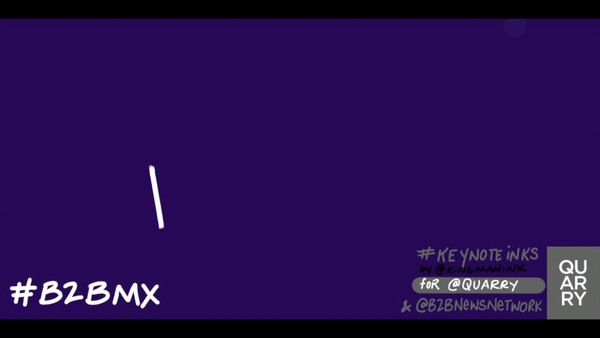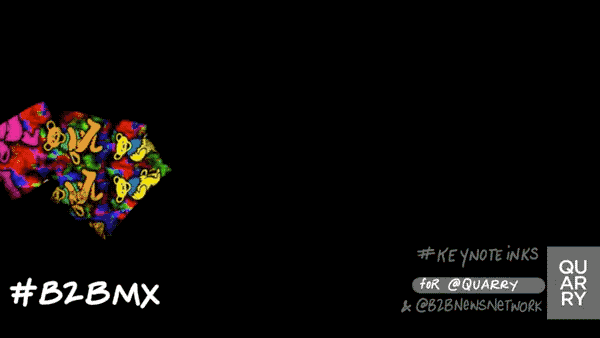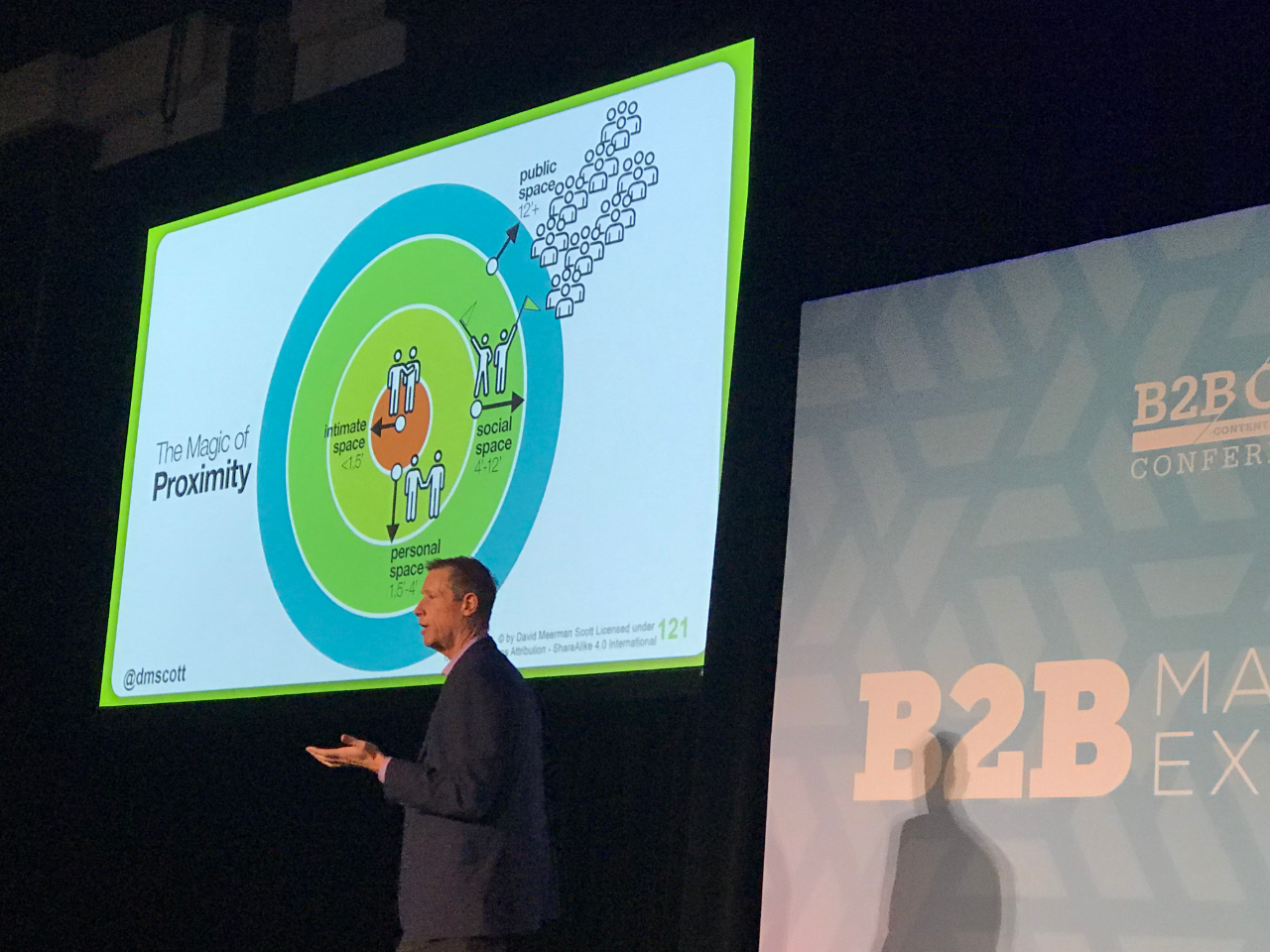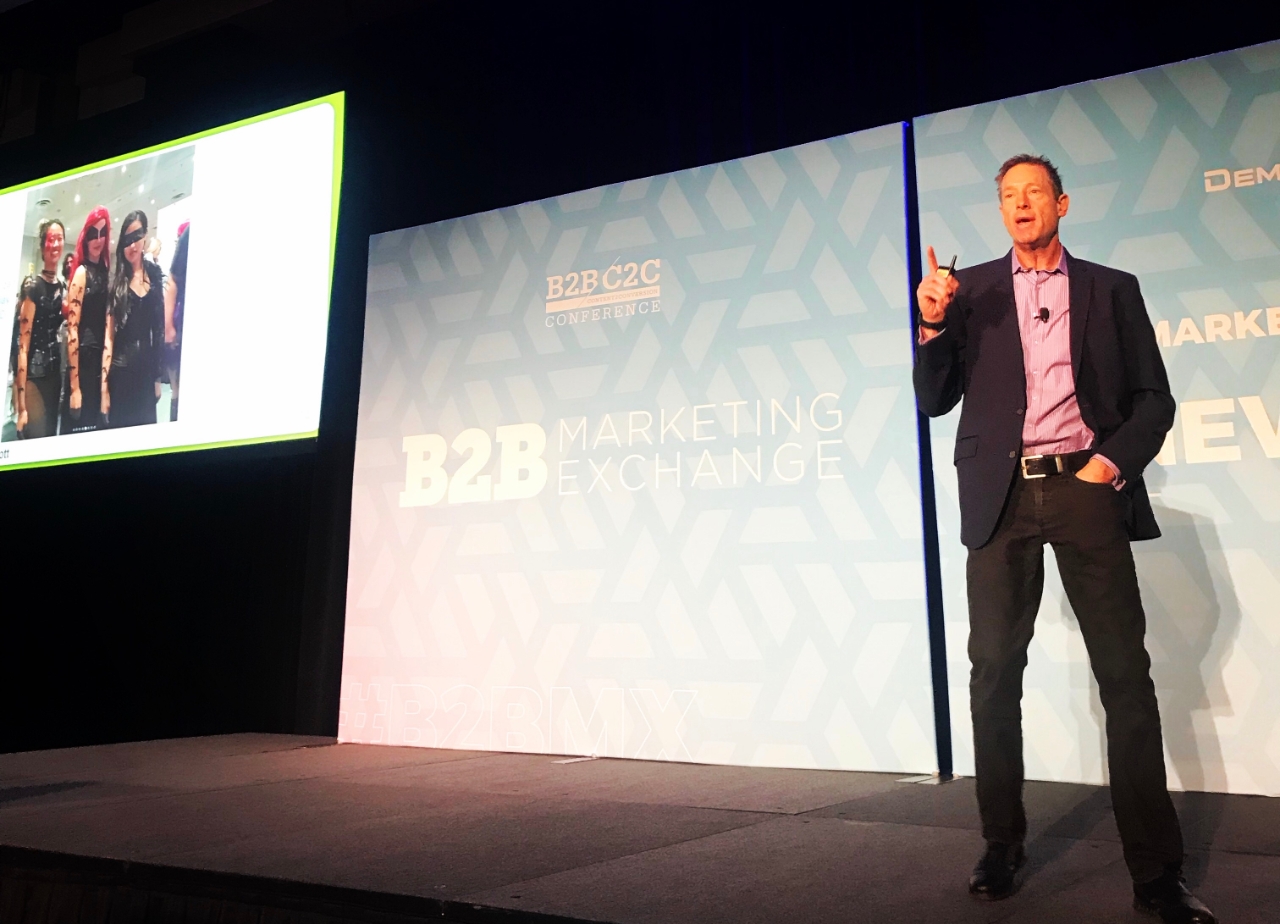Digital disruption has its perks for businesses. It has given companies the opportunity to engage with audiences in real time, wherever they are. But it has also made organizations forget that they are interacting with real people.
“So many people are focused so exclusively on the whole online thing,” said David Meerman Scott during his keynote presentation at the B2B Marketing Exchange in Scottsdale, Ariz. “The pendulum has swung too far in terms of superficial, online time when we are hungry for human interaction. Social media is causing disruption, chaos, fake news, polarization, spam — this makes it difficult for us to reach people.”
Scott’s solution to overcoming this digital chaos is by cultivating fandom.
“Most companies are not building powerful relationships with their customers because they’re not developing fans, because they’re not treating people as humans by focusing on digital,” said Scott. “The idea of cultivating fandom is how you can overcome digital chaos.”
While most might think that fandom is only achievable for pop culture — think Harry Potter, Fortnite, comics, etc. — Scott said that B2B companies can, in fact, capture the same kind of fandom in their businesses.
For example, Hagerty, a classic car insurance company, made it its mission to go out and expressly challenge themselves to build fans because “no one likes to buy insurance,” according to Scott. The company’s B2B division cultivated fandom by creating a video series called “Barn Finds” where the subject would go out and look for classic cars “American Pickers” style, educate people at classic auto shows, taught kids to drive stick shift in their classic cars. The company also created evaluation tools where you can see how the value of your classic car changes, formed a Driver’s Club with more than 600,000 members and produced multiple forms of thought leadership content for classic car enthusiasts.

So, what does “fandom” actually mean? Scott shared five criteria:
- It’s something you’re incredibly passionate about;
- It makes you extremely happy;
- You are eager to replicate it;
- You have good friends who do the same thing; and
- You devote significant time and money to it.
“Fandom is not about your products or services. Fandom is about relationships with people — it is a shared emotion.”
Elements Of Fandom
Scott’s research around the topic led him to develop nine key elements of fandom:
- Relationship centric;
- The magic of proximity;
- Let go of your creations;
- Beyond the transaction;
- Giving gifts;
- The compassion of storytelling;
- Transparency and truth;
- Your brand ambassadors; and
- A passionate life.
“An organization’s ability to build meaningful human connection will bring success in today’s chaotic world,” he said. “Our challenge as marketers is how can we capture that fandom in our business.”
He continued to dive deep into a few of the key points above in more detail.
1. Let Go Of Your Creations
“What I’ve noticed, is that some companies are so dogged in telling customers exactly how to use their products and services that they’re completely missing the fan-based culture that has blossomed around them.”
For example, there is a fandom that has developed around the Photoshop software. “But that fandom is happening outside of Adobe and Photoshop,” said Scott. According to him, Adobe says it’s incorrect to say an image is Photoshopped, but it’s correct to say the image was enhanced using Adobe Photoshop software.
“Our challenge in the B2B world is to let go of our creations,” he said. “No matter what product or service you’re selling, understand when you’re putting your product out to the world, it’s no longer yours. Embrace it.”

2. Giving Gifts
When it comes to distributing thought-leadership content, B2B organizations insist on putting them behind a form. But Scott wants to challenge companies to give content away for free — a common theme throughout the entire B2BMX event. “Expect nothing in return and good things will come back to you,” he said. “People will be compelled to give back.”
The Grateful Dead, for example, was one of the few bands who allowed concert goers to record their shows and take photos. But this didn’t lead fans to stop going to their shows, it drove more fandom.
Another example is Duracell’s PowerForward Program, which provides batteries to families where there are natural disasters. When batteries were high in demand, Duracell would give them away for free instead of taking advantage of the demand. People were appreciative, which in turn cultivated fans. The battery company has more than 600 million fans on Facebook.
3. The Magic Of Proximity

B2B marketers can also use the concept of proximity to build fans. “The closer you get to someone, the more powerful the shared emotions are,” he said.
This is why in-person events are so successful for B2B businesses. It gives companies a chance to connect with customers and prospects face-to-face. According to Scott, there are four areas of space that humans are programmed to think about: public, social, personal and intimate space.
Josh’s Rainbow Eggs, which sells ethical free-range eggs and was founded by a nine-year-old boy, used the power of proximity to cultivate fans. Since the beginning, Josh would make sure to get in close proximity with current and potential customers by selling his eggs in person at farmer’s markets, to showing up at super markets where the eggs would eventually be sold years later.
4. A Passionate Life
Finally, Scott touched on the importance of living a passionate life, which led to a unique point he made about how people represent things and companies they love by putting branded stickers on their laptops.
“If you live the life of someone who is passionate about something, you are more likely to be able to share fandoms with other people around your products or services,” he said. “All of us can develop fans. And you might even be able to develop fandom such that people are eager to put a sticker of your company on to their computer. That is the ultimate!”







